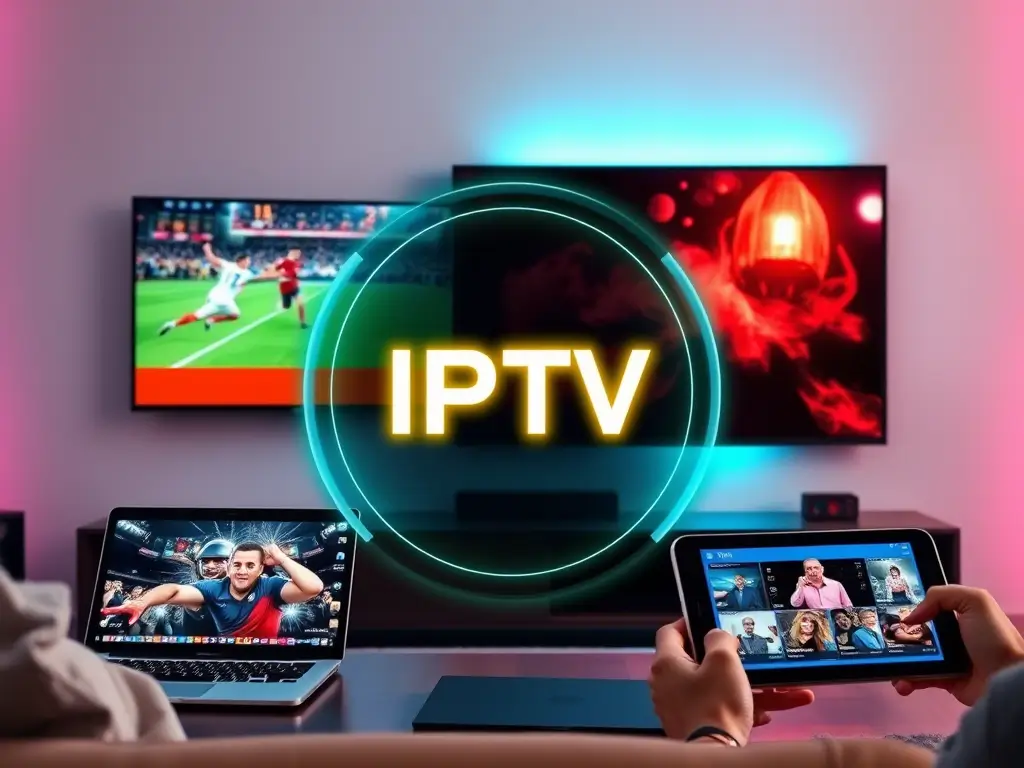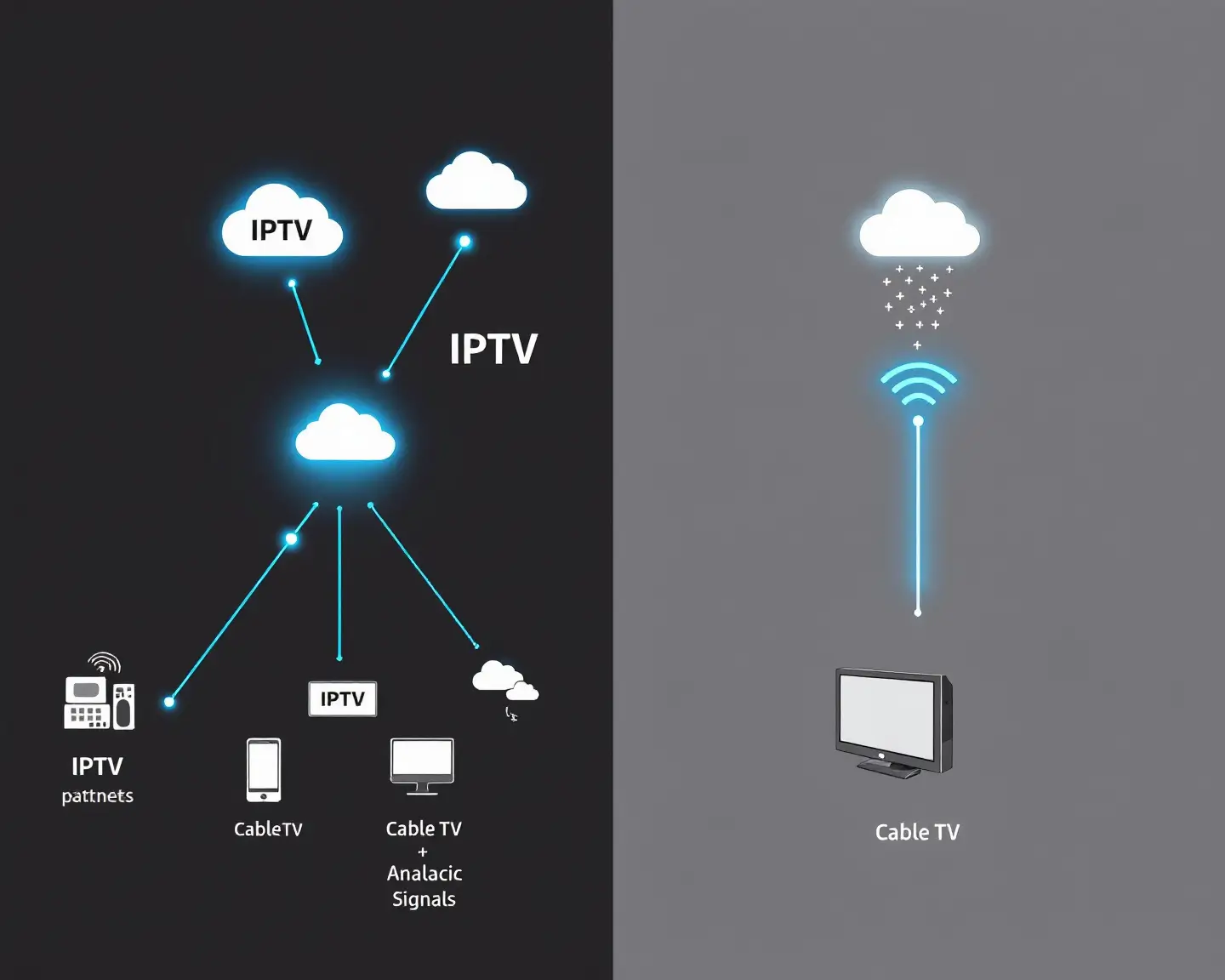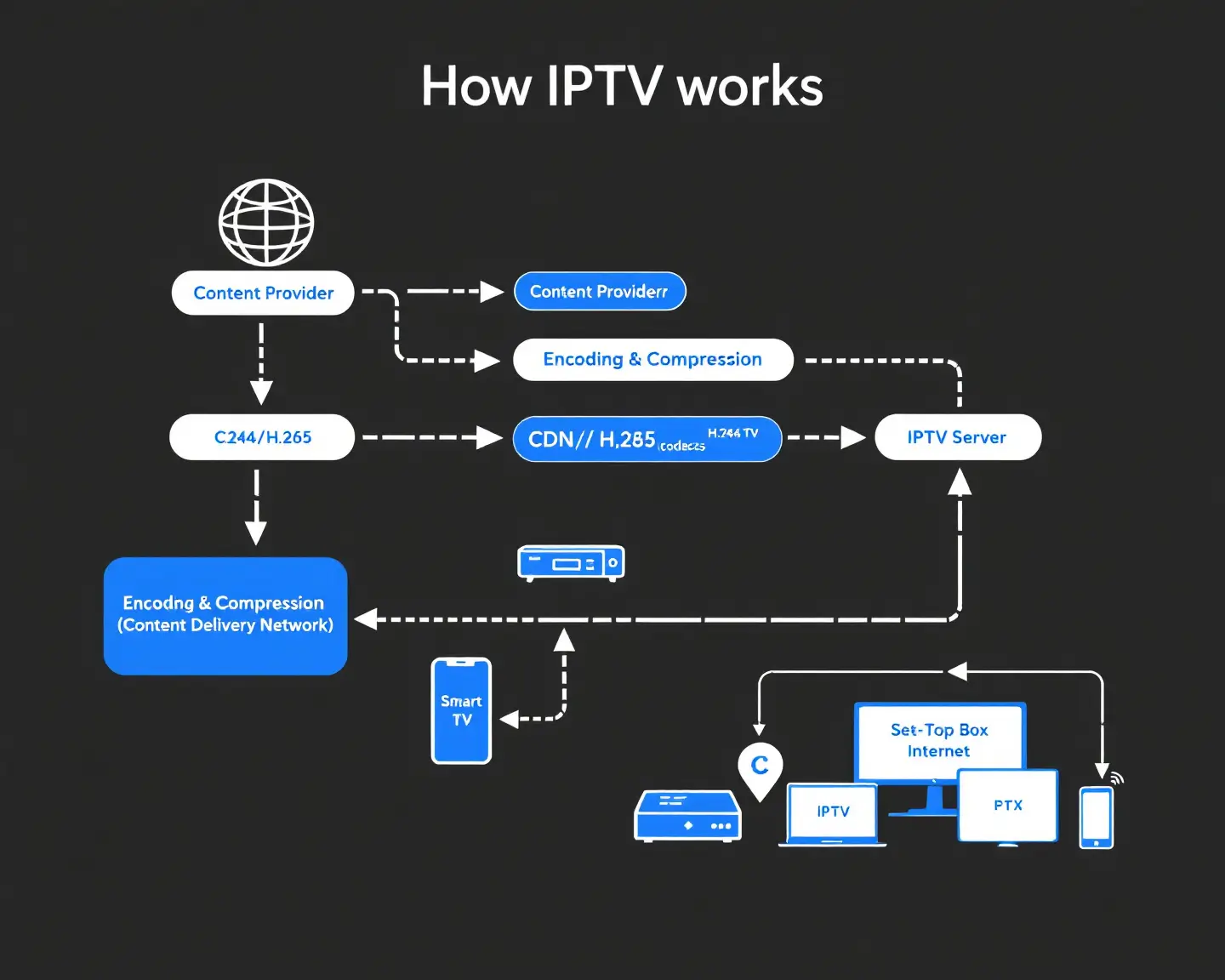Table of Contents : What is IPTV?
What is IPTV ? A Complete Guide to Understanding and Setting Up IPTV Streaming
In today’s fast-paced digital world, the way we consume media has undergone a massive transformation. Gone are the days when cable TV was the only option for entertainment. Enter IPTV , or Internet Protocol Television—a revolutionary technology that delivers television content over the internet rather than through traditional methods like satellite or cable.
If you’ve ever wondered how services like Netflix, Hulu, or YouTube TV operate, you’re already familiar with some aspects of IPTV streaming . But what exactly is IPTV, and why should you care?
This guide is designed for beginners and tech enthusiasts alike. Whether you’re looking to switch from cable TV, want to explore new ways of watching your favorite shows, or simply need clarity on the differences between legal IPTV providers and illegal streaming services, this article will provide everything you need to know about what is IPTV , how it works, its benefits, and even a step-by-step guide to setting it up on your devices.

What is IPTV? (In-Depth Definition)
At its core, IPTV refers to the delivery of television programs and other multimedia content using IP networks —essentially, the same infrastructure that powers the internet. Unlike traditional cable TV, which broadcasts content via satellite or coaxial cables, IPTV streams content directly over the web.
To put it simply, think of IPTV as ordering food delivery instead of dining at a restaurant. With traditional cable TV, you get a fixed menu of channels broadcasted at scheduled times. In contrast, IPTV streaming lets you choose exactly what you want to watch, when you want to watch it, and even pause or rewind live broadcasts if needed.
For example:
- Want to binge-watch an entire season of your favorite show without waiting for weekly episodes? IPTV allows that.
- Prefer catching up on last night’s football game while commuting? IPTV makes it possible.
Visual Tip : Include a simple diagram showing how IPTV differs from cable TV by illustrating data packets traveling over IP networks versus physical cables.

What is IPTV? : How IPTV Works (The Technical Stuff Explained Simply)
While understanding the technical aspects of IPTV might sound intimidating, let’s break it down into digestible parts:
1. Video Encoding and Compression (Codecs)
Before video content reaches your screen, it undergoes encoding and compression using codecs like H.264 or H.265. These codecs reduce file sizes without compromising quality, ensuring smooth IPTV streaming .
2. Content Delivery Networks (CDNs)
Once encoded, the content is distributed through Content Delivery Networks (CDNs) . CDNs store copies of media files closer to users, reducing latency and improving playback speed.
3. IP Multicasting vs. Unicasting
- Multicasting : Sends one stream to multiple users simultaneously, ideal for live events.
- Unicasting : Sends individual streams to each user, perfect for on-demand content.
4. Protocols Used
Various protocols facilitate IPTV delivery:
- RTSP (Real-Time Streaming Protocol) : For controlling media playback.
- RTP (Real-Time Transport Protocol) : For transmitting audio/video data.
- HLS (HTTP Live Streaming) & MPEG-DASH : Widely used for adaptive bitrate streaming.
Visual Tip : Use a flowchart to illustrate how content moves from the provider’s server to the viewer’s device.

IPTV vs. Traditional Cable TV
Let’s compare these two technologies side by side:
| Content Delivery | Over IP networks | Via satellite/cable |
| Interactivity | High (pause, rewind, record) | Limited |
| On-Demand Access | Yes | Rarely |
| Reliance on Internet | Yes | No |
While IPTV offers unparalleled convenience and features, it does require a stable high-speed internet connection
. On the flip side, traditional cable TV remains reliable during internet outages.
What is IPTV? :Types of IPTV (Video on Demand, Live TV, Timeshifted TV)
There are three primary types of IPTV services:
- Video on Demand (VoD) : Watch pre-recorded content anytime, similar to Netflix.
- Live TV : Stream real-time broadcasts, such as sports events or news channels.
- Timeshifted TV : Pause, rewind, or replay live broadcasts within a certain timeframe.
Each type caters to different viewing preferences, enhancing the overall user experience.
IPTV Devices (Set-Top Boxes, Smart TVs, Computers, Mobile Devices)
You don’t need fancy equipment to enjoy IPTV; most modern devices support it seamlessly:
- Smart TVs : Built-in apps for popular IPTV services.
- Set-Top Boxes : Dedicated hardware for enhanced performance.
- Computers & Mobile Devices : Use apps or browsers to stream content.
Pro Tip : Consider investing in a reliable set-top box for smoother IPTV setup experiences.
IPTV Providers (Services and Platforms)
When choosing an IPTV service, it’s crucial to differentiate between legitimate and illegal options. Legal IPTV providers include subscription-based platforms like Sling TV and YouTube TV, while unauthorized services often rely on pirated content.
Questions to Ask Before Signing Up:
- Is the provider licensed?
- What kind of content do they offer?
- Are there hidden fees?
IPTV Legality (Copyright and Piracy)
Using illegal IPTV services exposes you to significant risks, including copyright infringement lawsuits and malware infections. Always verify the legitimacy of a provider before subscribing.
Benefits of IPTV (Customization, Interactivity, Scalability)
From personalized playlists to interactive features, IPTV provides numerous advantages over traditional TV. It also scales easily, making it suitable for both households and enterprises.
Setting Up IPTV (Step-by-Step Guide)
Setting up IPTV varies depending on your device. Here’s a quick overview:
- On a Smart TV : Download the app provided by your IPTV service.
- On a Set-Top Box : Connect the box to your TV and configure settings.
- On a Computer : Install compatible software or access via browser.
- On a Mobile Device : Download the relevant app from the app store.
Include screenshots and troubleshooting tips.
IPTV Security (Protecting Your Data and Privacy)
Secure your IPTV streaming sessions by using a VPN and avoiding suspicious third-party apps.
IPTV for Business (Enterprise Applications)
Businesses leverage IPTV for training videos, internal communications, and customer engagement. Case studies highlight its effectiveness in industries like hospitality and healthcare.
The Future of IPTV (Trends and Predictions)
Emerging trends like 4K/8K resolution, VR integration, and AI-driven recommendations promise to reshape the IPTV landscape.
FAQ (Frequently Asked Questions)
- What is IPTV ?
It’s TV content delivered over the internet. - Is IPTV legal?
Yes, if you use authorized services. - How do I set up IPTV?
Follow our step-by-step guides above!
What is IPTV? :Conclusion
By now, you should have a solid understanding of what is IPTV , its benefits, and how to get started. Ready to embrace the future of television? Choose a reputable IPTV provider , follow our setup guide, and enjoy seamless streaming.
For more insights, check out related resources below!
